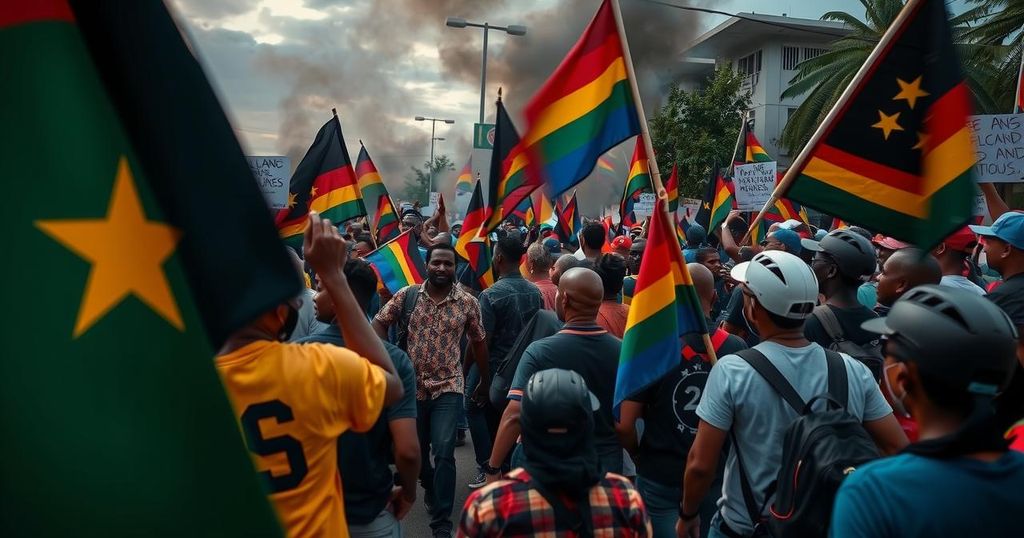Mozambique Protests Prohibited Amid Rising Violence After Election Results

Mozambique has enacted a ban on protests after weeks of violence stemming from a disputed presidential election, which left multiple fatalities and injuries. The pro-government party Frelimo has faced allegations of election rigging. Violence erupted following the victory of Daniel Chapo, while opposition leader Venâncio Mondlane has citing safety concerns. The government’s Interior Minister has declared the protests as acts of terrorism and urged cooperation from the public to restore order. Reports indicate a death toll exceeding 30, with internet access restricted in response to the unrest.
The Mozambican government has officially prohibited protests in response to escalating violence following the recent presidential election, which resulted in numerous fatalities and injuries. This decision was prompted by unrest that erupted after the Frelimo party, which has been in power since 1975, secured a disputed victory. The Interior Minister has condemned the demonstrations, labeling them as acts of “terrorism” and urging citizens to assist in quelling the unrest. Protests commenced in Maputo at the end of last month after the Frelimo candidate Daniel Chapo was declared the election victor with over 71% of the vote. Opposition leader Venâncio Mondlane, who garnered 20%, entered hiding due to concerns for his safety, particularly after the violent deaths of his aide and lawyer. Subsequent protests intensified, leading to significant clashes between demonstrators and police forces, who employed tear gas and rubber bullets to manage the situation. Reports indicate that at least 18 people have died, although some rights groups have reported a higher toll exceeding 30. The Interior Minister has characterized the demonstrations as severe instances of subversion. Following the unrest, the government has reportedly restricted internet access nationwide as an alleged tactic to stifle dissent and suppress peaceful protests. Opponents of the current regime claim that the election was marred by unfair practices, a charge that the government has vehemently denied. With President Filipe Nyusi preparing to step down after two constitutional terms, the political landscape remains tense.
The recent presidential election in Mozambique has been the catalyst for significant unrest, highlighting the underlying political tensions within the nation. Frelimo, the governing party since the country’s independence in 1975, faced accusations of election misconduct, with opposition leaders questioning the legitimacy of the electoral process. The aftermath of the election has seen a surge in protests, drawing attention to the broader implications of governance, civil rights, and political stability in Mozambique.
In conclusion, Mozambique’s decision to ban protests following violent post-election unrest underscores the fragility of political stability in the country. The government’s stance reflects its attempts to maintain order amid escalating tensions while facing accusations of electoral misconduct. The situation remains precarious as the authorities implement measures to suppress dissent amid claims for democratic accountability from opposition groups.
Original Source: www.bbc.com







